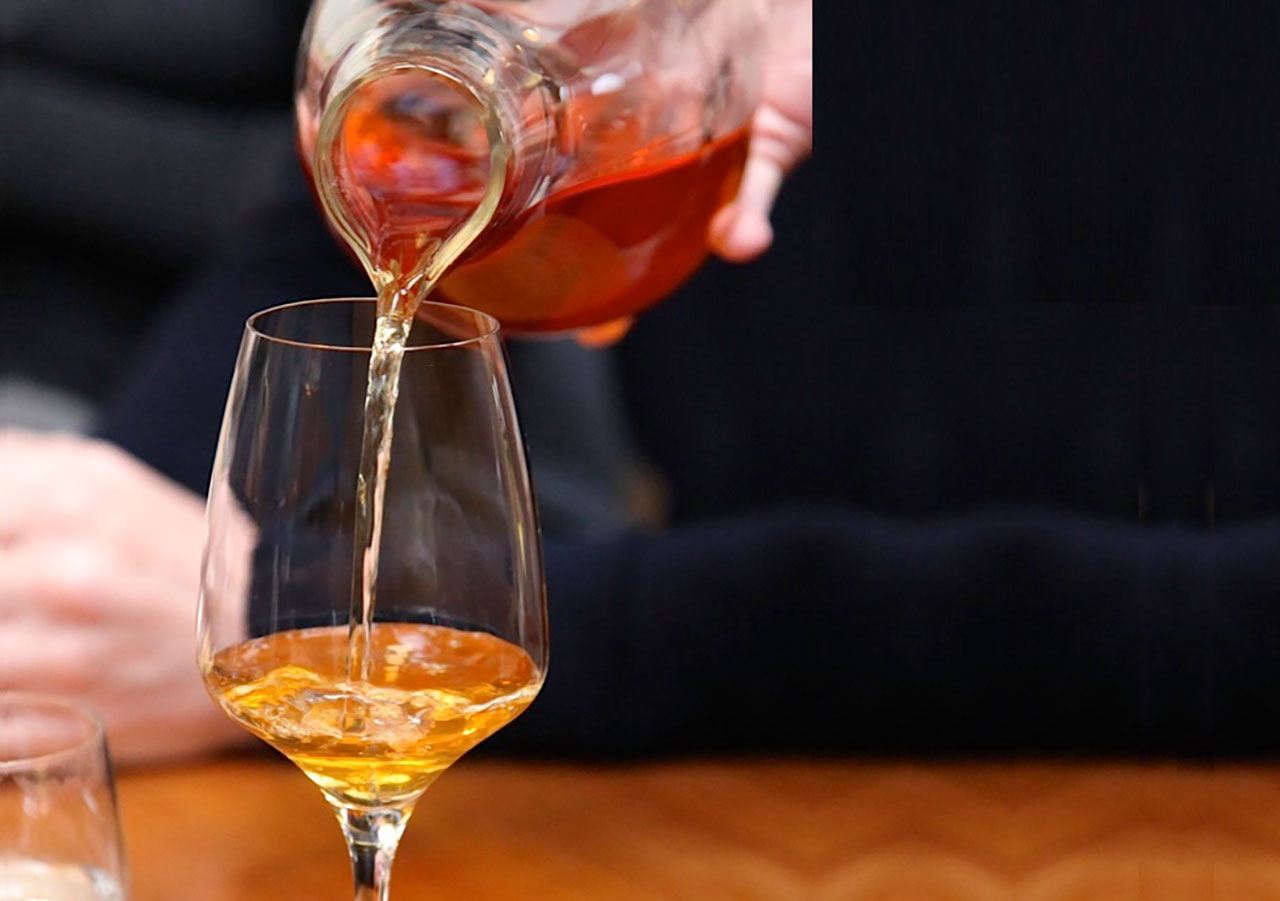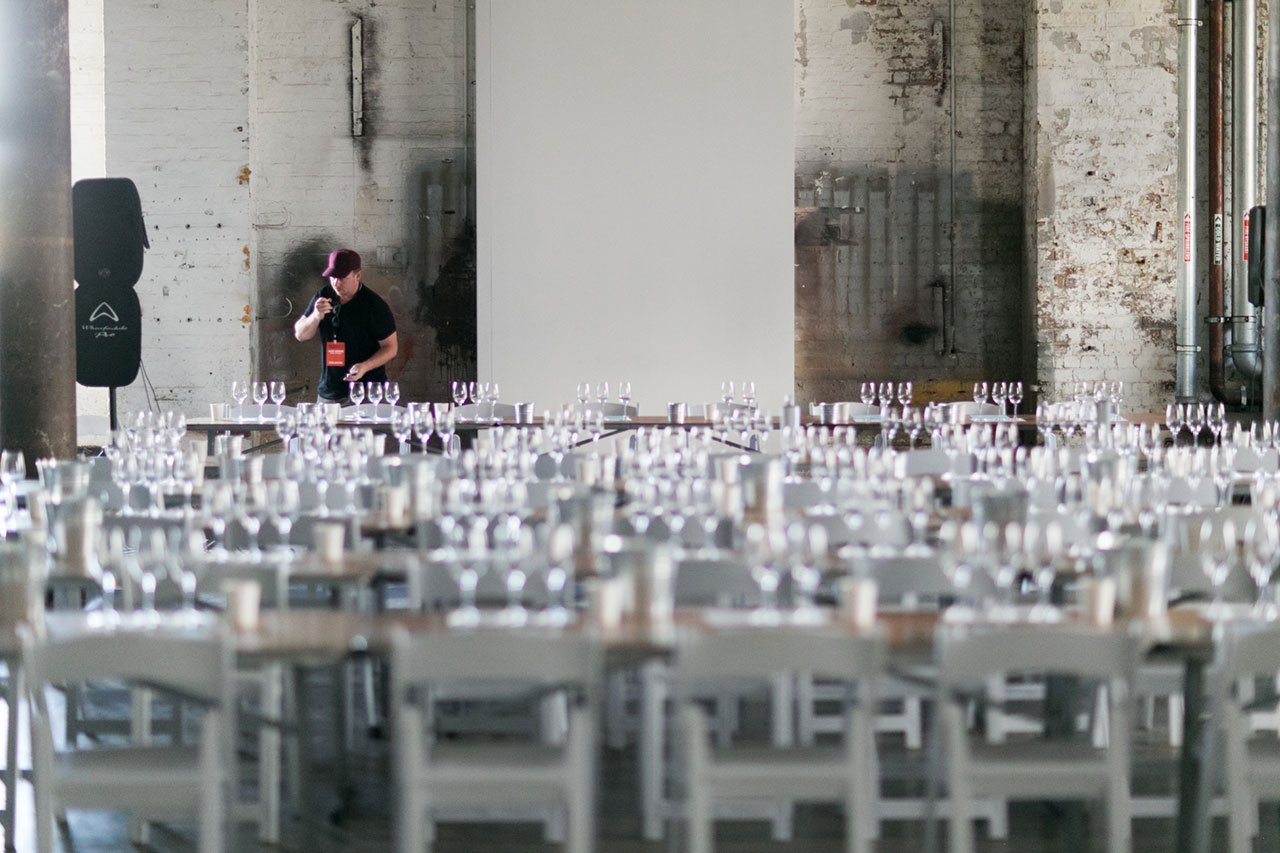News feed

Credit: Carriageworks
Considering our current cultural predilection for transparent and (mostly) unfiltered experiences, it’s something of a surprise that natural wines remain a largely supernatural experience for many: alien, kind of confronting and largely unfathomable.
Admittedly, my own experience with natural wine is limited (to around three or four bottles) but what I have tried has been far more successful as a conversion experience than my entire militant Anglican school education was. They’re unapologetic, robust and unpredictable; idiosyncratic and imperfect, a product of centuries old organic and biodynamic farming techniques, not laboratory intervention. As such, they’re sensitive to everything from the way in which they’re transported to the weather in which they’re drunk.
Unlike conventional wines of the kind that line our bottle shop shelves (pre-10pm curfew, of course) and wine lists, natural wines (which are distinct from ‘organic wines’, a term more concerned with the way in which the grapes are grown and not the winemaking process) contain none of the chemicals, correctives and additives that winemakers use to effectively homogenise their product and prolong their shelf life, resulting in wines with more soul and less sulphur – for better or worse.
“It’s like comparing a supermarket apple to a farmer’s market apple,” natural wine connoisseur, Fratelli Paradiso and 10 William restaurateur Giovanni Paradiso told GRAZIA. “One’s shiny and pumped with gas, the other tastes like apple. There’s no intervention in the wine making and, most of all, no sulphur dioxide.”

Credit: Carriageworks
Paradiso, who also moonlights as creative director of Italo Dining and Disco Club, says he had his first unforgettable encounter with natural wines some time in the early 90s at La Cremerie Caves Miard in Paris under the guidance of serial restauranteur Pierre Jancou, a natural wine evangelist and ardent advocate for Europe’s movement toward wine created with minimalist intervention. It was Jancou, he says, who “switched on the lights for me.”
It’s that light Paradiso aims to share not only through his much-loved and lauded restaurants but also through Italo’s collaboration with Rootstock Sydney, a natural food and wine festival taking place this coming weekend at Carriageworks. Now in its fourth year, Rootstock Sydney is a collaborative, not-for-profit festival that champions the best in sustainable food and wine started by Giorgio De Maria, Mike Bennie, James Hird, Linda Wiss and Matt Young. The weekend long celebration of natural wine is punctuated with artisan masterclasses hosted by producers, grape growers, chefs, educators, writers, artists and sommeliers for – perhaps most importantly – those with an unquenchable thirst.
Along with Icebergs Dining Room and Da Orazio restaurateur Maurice Terzini, Italo Dining and Disco Club will close Rootstock with a closing party that promises to be a multi-sensory experience conflating the bar, restaurant and club worlds – one that shares in many of natural wine’s best qualities.
“You taste terroir, fruit, every vintage is different, their beauty is in the imperfection, plus its delicious and gets you a little fucked up.”
Rootstock takes place over two days from Saturday November 26-27. The closing party takes from from 6-10pm on Sunday. Entry is free. You can find out more information here.
Tile and cover image: Carriageworks










